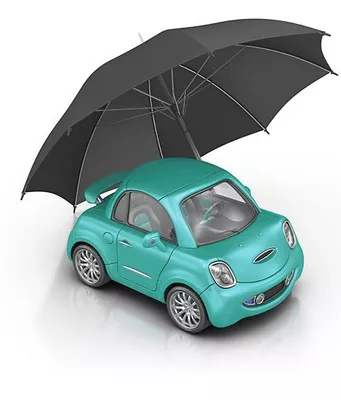Before we dive into the details of what is not covered by comprehensive auto insurance, it’s important to understand that comprehensive coverage is a crucial aspect of protecting your vehicle. However, there are certain situations and items that fall outside the scope of this coverage. In this article, we will explore five key aspects that are typically not covered by comprehensive auto insurance. By being aware of these limitations, you can make informed decisions about your insurance coverage.
Aspect one: Regular Maintenance and Wear and Tear
Comprehensive auto insurance is designed to provide coverage for damage resulting from unexpected events such as accidents, theft, vandalism, or natural disasters. However, it’s essential to note that routine maintenance and general wear and tear are not covered by comprehensive insurance. This means that expenses related to oil changes, tire rotations, brake replacements, and other maintenance tasks are your responsibility as a vehicle owner.
Aspect two: Mechanical Failures
While comprehensive coverage is expansive, it does not extend to mechanical failures or breakdowns. If your car experiences a mechanical issue or a breakdown due to age, mileage, or manufacturing defects, your comprehensive insurance will not foot the bill for repairs. It’s advisable to have a separate extended warranty or a maintenance plan to cover such situations.
Aspect three: Custom Accessories and Upgrades
If you’ve invested in custom accessories, modifications, or upgrades for your vehicle, it’s important to know that these may not be covered by your comprehensive insurance. While your base vehicle might be protected, additions like high-end audio systems, custom rims, or performance enhancements might require additional coverage options to ensure full protection.
Aspect four: Personal Belongings
Comprehensive auto insurance primarily focuses on damage to the vehicle itself. Unfortunately, personal belongings left in the car at the time of an incident are generally not covered. If your vehicle is broken into and personal items such as electronics, clothing, or valuables are stolen or damaged, you’ll need to look into your homeowner’s or renter’s insurance to seek compensation for those losses.
Aspect five: Rental Car Reimbursement
Although comprehensive coverage provides financial protection against damage or loss to your vehicle, it typically does not include coverage for rental car reimbursement. If your vehicle needs repairs following a covered incident, you may need to arrange alternative transportation at your own expense. To address this gap, consider purchasing rental car reimbursement coverage or exploring alternatives like ridesharing or public transportation.
Conclusion
In conclusion, comprehensive auto insurance is a valuable safeguard against unexpected events that can damage your vehicle. However, it’s important to be aware of its limitations. Regular maintenance, mechanical failures, custom accessories, personal belongings, and rental car reimbursement are among the aspects not covered by comprehensive insurance. To ensure comprehensive protection, carefully review your policy, consider additional coverage options, and weigh the potential risks against your needs and budget. Being well-informed about your insurance coverage empowers you to make the best decisions for your vehicle’s protection and your peace of mind.
FAQs about What is Not Covered by Comprehensive Auto Insurance:
Q1: What exactly is comprehensive auto insurance?
Comprehensive auto insurance is a type of coverage that protects your vehicle from a range of non-collision incidents, such as theft, vandalism, natural disasters, and falling objects. However, it’s essential to know that not everything falls within its coverage scope.
Q2: Does comprehensive coverage include regular maintenance expenses?
No, it doesn’t. Comprehensive insurance focuses on unexpected events like accidents and theft. Regular maintenance costs, such as oil changes, tire rotations, and brake replacements, are not covered. These are considered part of routine vehicle ownership.
Q3: Does comprehensive coverage include rental car reimbursement?
No, it doesn’t. While comprehensive insurance covers damage to your vehicle, it typically doesn’t provide rental car reimbursement. If your car requires repairs after a covered incident, you might need to find alternate transportation at your own expense.
Q4: Are damages caused by acts of war or terrorism covered?
Damages resulting from acts of war, terrorism, or civil unrest are usually not covered by comprehensive insurance. If you live in an area prone to these events, consider exploring additional insurance options to address this gap.
Q5: Is diminished value covered by comprehensive insurance?
Most comprehensive insurance policies do not cover diminished value. This refers to the decrease in your vehicle’s market value after it’s been repaired following an accident. Some insurers offer separate coverage or endorsements for this concern.
Q6: How can I ensure I have comprehensive protection for my vehicle?
To ensure comprehensive protection, carefully review your insurance policy. Assess your needs, potential risks, and explore additional coverage options to address any gaps. Tailoring your coverage to your specific situation is key.


